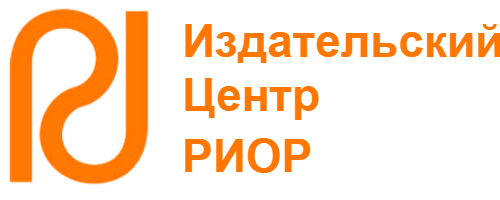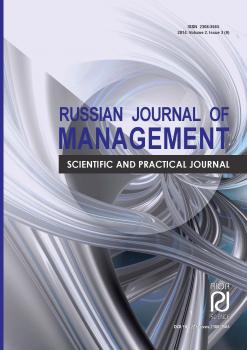The article develops the theoretical and methodological base of research of institutional risks of economic agents and on this basis processes technologies of management of institutional risks of innovative activity. The authors prove the theoretical and methodological approach to research the institutional risks based on interdisciplinary and institutional approaches; offer theoretical and methodical approach to decrease the institutional risks of subjects of innovative activity and also consider the directions and technologies of decrease the institutional risks of subjects of innovative activity. It is offered to consider the general theory of risk and the statements of the institutional economic theory as a theoretical and methodological basis of the concept of institutional risk development. A generalized algorithm of institutional risks management at the level of the economic agent is presented. The following groups of methods of institutional risks decrease are considered: avoidance, insurance, compensation, localization, and distribution (dissipation) of risk. A three-level theoretical model of management of institutional risks of innovative activity is offered. Directions of institutional risks decrease of innovative activity are offered.
risk, institutional risks, risk management, technologies of risk reduction
Интеграция научных подходов к исследованию феномена риска со стороны представителей различных областей научного знания представляется положительным вектором и отражает многообразие причин возникновения рисков современного общества: геополитических, техногенных, страховых, финансовых, природных, экологических. В условиях активной модернизации российской экономики, когда нормы и правила поведения всех участников институционального пространства постоянно корректируются множеством факторов, существенным представляется возрастание институциональных рисков экономических агентов.
Модернизация институциональных основ российской экономики в последние двадцать лет сопровождалась процессами активного формирования сообщества, профессионально занимающегося исследованиями риска. Например, в 2003 г. было создано Российское научное общество анализа риска. В настоящее время оно имеет филиалы и представительства во всех федеральных округах и в шестидесяти регионах страны, курирует издание журнала «Проблемы анализа риска». Учредителями Русского общества управления рисками (РусРиск) выступили Российский союз промышленников и предпринимателей (РСПП), Национальная фондовая ассоциация (НФА), научно-просветительский фонд «Экспертный институт» и Московская ассоциация страховщиков. В 2012 г. был утвержден профессиональный стандарт по управлению рисками «Управление рисками (риск-менеджмент организации)». Все изложенное подтверждает актуальность обозначенной темы исследования — технологий управления институциональными рисками.
1. Al’gin A.P. Risk i ego rol’ v obschestvennoy zhizni [Risk and its role in public life]. Moscow: Misl’ Publ., 1989. 187 p.
2. Antikrizisnoye upravleniye [Crisis management] / Ed. by E.M. Korotkov. Moscow: INFRA-M Publ., 2012. 620 p.
3. Beck U. Risk Society. On the way to another modernity. Moscow: Progress-Tradiciya Publ., 2000. 384 p.
4. Vorobjev S.N., Baldin K.V. Upravlenie riskami v predprinimatel’stve [Risk management in entrepreneurship]. Moscow: Dashkov and K° Publ., 2013. 482 p.
5. Dementjev V.V. What do we investigate when researching institutions? Terra Economicus (Ekonomicheskij vestnik Rostovskogo gosudarstvennogo universiteta) [Terra Economicus (Economic Bulletin of the Rostov State University)], 2009, vol. 7, no 1, p. 13-30.
6. Diev V.S. Risk and uncertainty in philosophy, science, management. Vestnik Tomskogo gosudarstvennogo universiteta [Bulletin of the Tomsk State University], 2011, no 2, p. 79-88.
7. Innovation rating of Russia (May 2011). URL: http://www.rane.ru.
8. Kuznecov V.N. Sociologiya bezopasnosti [Sociology of security]. Moscow: KDU Publ., 2009. 422 p.
9. Luman N. The concept of risk. THESIS: teoriya i istoriya ekonomicheskih i social’nih institutov i sistem [THESIS: theory and history of economic and social institutions and systems], 1994, no 5, p. 135-160.
10. Nekrasov S.I., Nekrasova N.A. Filosofiya nauki i tehniki [Philosophy of science and technology]: thematic dictionary: a tutorial. Orel: Orel State University, 2010. 289 p.
11. Novaya filosofskaya entsiklopediya [New Encyclopedia of Philosophy] / Institute of Philosophy, Russian Academy of Sciences; chairman of editorial board V.S. Stepin, science ed. M.S. Kovaleva, etc. Moscow: Mysl´ Publ., 2010. Vol. 2.
12. The risk society and people: ontological and axiological aspects: [Monograph] / Ed. by V.B. Ust’yancev. Saratov: Saratovskiy istochnik, 2006. 295 p.
13. Rayzberg B.A., Lozovskiy L.Sh., Starodubceva E.B. Sovremenniy ekonomicheskiy slovar’ [Modern economic dictionary]. 2nd ed., revised. Moscow: INFRA-M Publ., 1999. 479 p.
14. Solncev O.G., Pestova A.A. Mamonov M.E. et al. Experience in the development of early warning system for financial crises, and a forecast of the Russian banking sector in 2012. Zhurnal novoy ekonomicheskoy associacii [Journal of new economic association], 2011, no 12, p. 41-76.
15. Chernisheva T.Yu. Approaches to risk management of it projects at the concept design stage. Problemi analiza riska [Problems of risk analysis], 2013, no 2, p. 44-48.
16. Yanickiy O.N. Sociology of risk: key ideas. Mir Rossii [The World of Russia], 2003, no 1, p. 3-35.
17. Homo institutios - institutional man / Ed. by O.V. Inshakova. Volgograd: Publishing house of the Volga, 2005. 854 p.














